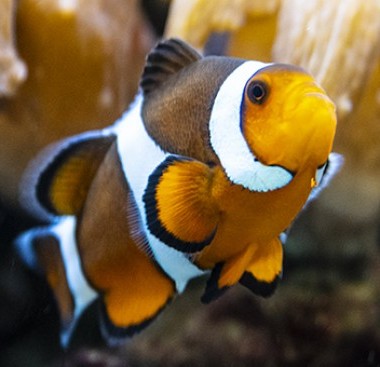ANIMAL RIGHTS LAWYER PROMOTES ABOLITION OF HUMAN-ANIMAL BOND
By: Staff Date: 01/16/2012 Category: | Animal Rights Extremism |
“I am not interested in whether a cow should be able to bring a lawsuit against a farmer; I am interested in why we have the cow in the first place,” animal rights lawyer Gary Francione said in an interview published in Actionlines, the newsletter of Friends of Animals. “If we are serious about animal rights, we have a responsibility to stop bringing them into existence for our purposes. We would stop bringing all domestic animals into existence for human purposes.”
Francione’s comments echoed the sentiments of HSUS vice president Wayne Pacelle, the former Fund for Animals official who said, “We have no problem with the extinction of domestic animals.”
Francione taught the nation’s first course in animal rights law in 1989 and operated the Rutgers Animal Rights Law Clinic for several years. That clinic closed in 1999, but Rutgers and Francione had already paved the way for dozens of universities to begin courses in animal rights law.
Francione told Actionlines that owning animals is akin to slavery, an idea prevalent in the guardianship campaign of Eliot Katz, the veterinarian who wants to end the right to possess animals, and People for the Ethical Treatment of Animals, a radical group that espouses an end to all animal use, including the keeping of pets.
“I argue that all sentient beings should have one right: the right not to be treated as our property – the right not to be valued exclusively as means to human ends,” Francione said. “If we accepted that animals have the right not to be treated as our property, we would stop – completely – bringing domestic animals into existence.”
He asserted that abolition of animal ownership is a moral obligation and without abolition as a goal, the animal rights movement is no different than the animal welfare movement. He criticized fellow activist Peter Singer, animal rights groups, lawyers, Ingrid Newkirk, and Jane Gooddall for impeding progress in achieving that goal. Singer is satisfied with inconsequential changes such as larger cages for chickens, Gooddall thinks its OK to eat some animals but not others, national groups are afraid to offend donors by stating abolition as a goal, and lawyers use cruelty cases to make money, he said.
One of the original signers of the Declaration on the Rights of Great Apes, Francione said he does not support the notion that animals deserve rights based on their similarity to humans.
“To put the matter another way: just because a cow does not have the same cognitive characteristics as does a chimpanzee does mean that it is OK to eat cow any more than the fact that the cow may have different characteristics from a fish mean that it is OK to eat the fish,” he told the interviewer. “... Jane Goodall is currently urging that African people eat goats instead of chimpanzees. Why? Because chimpanzees are more ‘like us’ than are goats? This makes no sense to me and Goodall’s position is the antithesis of the animal rights view.”
He went on to say that the antics of People for the Ethical Treatment of Animals and statements by Singer and PeTA’s Newkirk trivialize the animal rights movement.
“Ironically, Singer and PeTA together have eviscerated the animal rights movement in the United States. PeTA president Ingrid Newkirk has informed us that Peter Singer is an intellectual who looks at all nuances of an issue. Newkirk was defending an essay called ‘Heavy Petting,’ in which Singer had something nice to say about the idea of having sex with calves – sex with baby cows. ... Now, I can appreciate a good nuance now and then, but I draw the line at baby cows.
“And then we’ve got PeTA bringing Playboy models to Capitol Hill, to attract the attention of legislators. PeTA trivializes activism just as Peter Singer trivializes the theory of animal rights. Combined, these people have managed to turn a serious idea into a peep show,” he said.
Francione’s ‘moral baselines’ for the animal rights movement are:
- The animal rights position maintains that all sentient beings, humans or nonhuman, have one right: the basic right not to be treated as the property of others.
- Our recognition of the one basic right means that we must abolish, and not merely regulate, institutionalized animal exploitation – because it assumes that animals are the property of humans.
- Just as we reject racism, sexism, ageism, and homophobia, we reject speciesism. The species of a sentient being is no more reason to deny the protection of this basic right than race, sex, age, or sexual orientation is a reason to deny membership in the human moral community to other humans.
- We recognize that we will not abolish overnight the property status of nonhumans, but we will support only those campaigns and positions that explicitly promote the abolitionist agenda. We will not support positions that call for supposedly “improved” regulation of animal exploitation. We reject any campaign that promotes sexism, racism, homophobia or other forms of discrimination against humans.
- We recognize that the most important step that any of us can take toward abolition is to adopt the vegan lifestyle and to educate others about veganism. Veganism is the principle of abolition applied to one’s personal life and the consumption of any meat, fowl, fish, or diary product, or the wearing or use of animal products, and is inconsistent with the abolitionist perspective.
- We recognize the principle of nonviolence as the guiding principle of the animal rights movement.
On August 21, the San Francisco Chronicle published a letter to the editor from Francione and Lee Hall, executive director of Friends of Animals in which the writers reinforced Francione’s call for abolition of property status for animals.
“It is our view that animals should not be brought under the control of human owners in the first place and, therefore, that humans should stop producing domestic animals for human use,” they wrote. “In other words, what is wrong is that we put a lion in a zoo in the first place — not that we fail to give the lion standing to sue the zookeeper.”
About The Author
All Authors Of This Article: | Norma Bennett Woolf |












